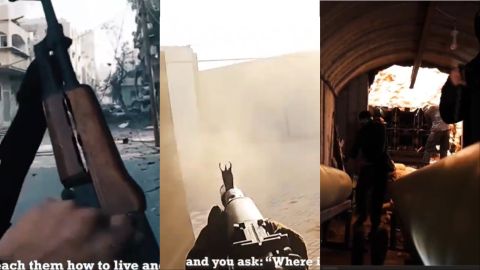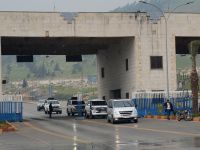ALBAWABA - As the war on Gaza enters its 11th month, Israel is facing a significant economic downturn. According to a report published by "The Conversation," Israel’s economy is showing the slowest growth among the wealthiest nations of the Organization for Economic Cooperation and Development (OECD).
Data reveals that Israel’s Gross Domestic Product (GDP) contracted by 4.1% in the weeks following Hamas' large-scale attack on October 7, 2023. The economic slump persisted through 2024, with further declines of 1.1% and 1.4% in the first two quarters.
The situation worsened following a nationwide strike on September 1, which briefly paralyzed Israel’s economy. Public dissatisfaction with the government's handling of the war continues to grow.
While Israel’s economic struggles are minor compared to the devastation of Gaza’s economy, the protracted war is taking a toll on Israeli finances, corporate investments, and consumer confidence, "The Conversation" reports.
Before the war, Israel’s economy was thriving, driven primarily by the tech industry. The country’s GDP per capita grew by 6.8% in 2021 and 4.8% in 2022, significantly outpacing most Western economies.
However, the war has dramatically altered the situation. In July 2024, the Bank of Israel revised its growth forecast for the year to 1.5%, down from an earlier projection of 2.8%.
With no end to the conflict in sight, and with rising tensions on the Lebanese border with Hezbollah, the Bank of Israel estimates that the war could cost $67 billion by 2025.
Even with the U.S. providing $14.5 billion in military aid, Israel’s financial reserves may not be enough to cover these expenses, according to the report.
Israel now faces difficult choices on how to allocate its resources. The government may need to cut spending in certain sectors or increase borrowing. More debt would result in higher loan repayments and increased future servicing costs.
This growing financial strain raises questions about Israel's ability to sustain its current military strategy. Ongoing operations in Gaza, aimed at neutralizing Hamas, require ground forces, advanced weaponry, and continuous logistical support, all of which come at a significant cost.
Beyond the overall economic slowdown, specific sectors in Israel have been hit hard by the war. The construction sector, for example, saw activity decline by a third in the first two months of the conflict. Agricultural production also fell by about 25% in certain areas.
In an effort to address the labor shortage, the Israeli government has brought in workers from countries like India and Sri Lanka. However, many key positions remain unfilled.
Estimates suggest that up to 60,000 Israeli businesses may close in 2024 due to labor shortages, supply chain disruptions, and declining business confidence. Many companies have also postponed launching new projects.
Tourism, though not a core part of Israel’s economy, has suffered as well. Tourist numbers have plummeted since the war began, with about 10% of hotels across the country at risk of closing.
While Israel's economy has been severely impacted by the ongoing war, the damage to the Palestinian economy, particularly in Gaza, has been far more catastrophic. Rebuilding could take years, according to "The Conversation.
The war’s effects are being felt far beyond Israel and Palestine. In April, the International Monetary Fund (IMF) predicted weak growth of just 2.6% in the Middle East for 2024, attributing this to the uncertainty created by the conflict in Gaza and the risk of a wider regional war.










